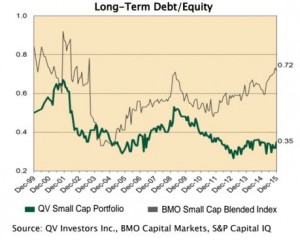I read a commentary about the current investment market by Iain Cooke of QV Investors, and found it to be worth sharing. Hope you find it as insightful as I did.
Navigating Storms
Earlier this week, while the eastern US recovered from a treacherous weekend blizzard, investors grappled with an ugly weather report of their own from the world’s largest public company:
“We’re seeing extreme conditions unlike anything we’ve experienced before just about everywhere we look. Major markets including Brazil, Russia, Japan, Canada, Southeast Asia, Australia, Turkey and the Eurozone have been impacted by slowing economic growth, falling commodity prices and weakening currencies.” -Timothy Cook, Chief Executive Officer & Director, Apple Inc.
Given the inclement investment environment we are navigating through, it is important to revisit some simple all-weather investing rules. Be prepared, be aware, think beyond the short term and stay calm.
In being prepared, we maintain the view that the cheapest form of equity market insurance is to own high quality businesses with strong balance sheets. All of our equity mandates exhibit stronger balance sheet characteristics than their respective benchmarks with less overall debt and more cash flow coverage. The below chart provides a snapshot of the QV Canadian Small Cap Portfolio’s long-term debt-to-equity ratio relative to its benchmark:
The strategy’s debt metrics are also favourable compared to the broader S&P/TSX Index, which maintains a long-term debt-to-equity ratio of approximately 0.59. When it comes to debt, less is more. Companies with strong balance sheets can survive financial storms and take advantage of opportunities that emerge when chaos reigns.
During an economic squall, seeking shelter in a basement will not save you. Investors must be acutely aware of market realities, assess risks, and monitor conditions as they develop. Currently, some indicators of focus include commodity prices and junk bond yields. Commodity prices are moving in lock step with global growth expectations. Beyond this week’s bounce, stabilization in commodity prices would lessen our concerns related to further global growth deterioration. The US has been the largest contributor to global growth in recent years. However, their manufacturing base has been negatively impacted by the broad based strength in the US dollar. If this weakness manifested itself in the broader economy, we would expect this to creep further into the junk bond market and have grave implications on global growth. If the junk bond market deteriorated further from here, regardless of what commodities are doing, this would be an economic red flag.
If economic signals move toward further deterioration, stay calm. Long-term returns are often most attractive when short-term returns look bleak. Everyone enjoys a good sale when it comes to buying shoes and groceries. Maintain that mentality when it comes to stocks. In our balanced mandates, throughout the past year we have made constructive adjustments to our asset mix, increasing cash when appropriate. Within the QV equity funds, we have consistently reduced exposure to companies that are quality in nature but priced for near perfection. With negative headlines now abundant, we are investing in attractively priced businesses that can withstand gale forced economic headwinds should they arise.




Leave a Reply